MSc in BUSINESS INTELLIGENCE AND ANALYTICS
COURSE OVERVIEW
54,439,200 UZS
per course
75,870,000 UZS
per course
1 year - full time
2 years - part time
Classes start at 6:30 PM
Course description
The Master of Science (MSc) in Business Intelligence and Analytics is currently the most popular postgraduate route of studies in international higher education. The course will help you explore the world of modern data science that addresses the business need to advance data organisation and information gathering, get insight into information and exploit knowledge hidden in routinely collected data to improve decision-making. The course is technology focused and will equip you with advanced knowledge and skills in business intelligence as well as in predictive and prescriptive analytics so that you become a professional “story-teller” on comprehensive business information.
Throughout your learning journey, you will be working with a team of dedicated, dynamic and research active academic staff who are committed to providing high quality research-led teaching with practical classes. You will benefit from talks and presentations by visiting lecturers – a range of e-business and IT industry specialists – and various student forums where you will have the opportunity to present your research findings to leading business people and professionals.
How you will study
Learning on this course is a partnership between the student, his/her peers, and the teaching team. It is a mix of timetabled activity and student’s own personal study.
The course applies a problem-based learning approach to structure the content and delivery of lectures, seminars and other in/out-of-class activities with the use of case studies to improve your analytical and problem-solving skills. In practical workshop seminars, you will enrich your problem-solving skills in various business analytics tools through the use of a wide range of application software and platforms, such as MS Excel and its sophisticated Add-ins, Power BI, Python, SPSS, SQL and non-SQL-based DBMS, AWS, Simul8, Insight Maker and others. The course team organises regular presentations by external speakers with industrial experience that will help you understand how the taught material is applied in industry.
Teaching staff are often engaged in research or commercial activities and this ensures that you will gain an understanding of contemporary issues in the field. Student projects are often integrated with industry real cases and problems. This makes the course very attractive as well as a practical study destination if you want to grasp the global digital challenge as a data science professional.
Course structure
The course consists of four core modules and three optional modules. The course structure is validated by the University of Westminster (UK) every five years. This may change, if necessary, in order to adapt to feedback received from a variety of sources.
- Big Data Theory and Practice
- Business Analytics
- Data Repositories Principles & Tools
- Business Systems Postgraduate Project
- Business Optimisation
- Simulation Modeling
- Data Mining and Machine Learning
- Data Warehousing and OLAP
- Digital Business
- Data Visualisation & Dashboarding
- Web & Social Media Analytics
WHY STUDY THIS COURSE?
ENTRY REQUIREMENTS
Applicants should normally hold an Undergraduate degree (or equivalent) from a recognised higher education institution with a minimum of a second lower class honours (2:2 or equivalent). Applicants without a formal higher education qualification or a formal qualification that is not at an equivalent academic standard, may be considered if the following conditions apply:
- They are or have been in employment where their role is in the area of the course and involves a high level of analysis and critical thinking.
Applicants must have:
Had their first or second degree (or equivalent) taught and assessed in English; or
IELTS with an overall score of at least 6.5 with a minimum of 6.0 in writing or another English Language Test recognised by the University of Westminster; or
The required pass level on the WIUT Pre-sessional Academic English Course for PG studies: cad.wiut.uz
We accept the TOEFL (IBT (In person test) for entry to our programmes. We also accept TOEFL ‘My Best Scores’ where it relates to TOEFL iBT test results.
Please note that the TOEFL Home Edition (Online test) is not accepted for entry to WIUT degree programmes.
TOEFL should be 88 overall with a minimum of 21 in Writing
CAREERS
Potential Career Pathways
Graduates of the MSc in Business Intelligence and Analytics are well-prepared for various roles, including:
- Data Scientist
- Business Analyst
- Big Data Engineer
- Decision Science Analyst
- Analytics Consultant

COURSE LEADER
Mukhammad Muso Abduzhabbarov
Mukhammad Muso Abduzhabbarov is the Course Leader for the MSc in Business Intelligence and Analytics at Westminster International University in Tashkent (WIUT) and a Senior Lecturer in Computing. He holds a Master’s degree in Data Science from the Higher School of Economics (HSE) in Moscow and a PhD in Mathematics.
With more than 10 years of academic and professional experience, Muso has worked in various roles, ranging from Lecturer to Assistant Professor, including as an ML Expert and Consultant in the software industry. His fields of interest and expertise are Data Science, Machine Learning, Deep Learning (NLP, CV), Algorithms and Data Structures, and Numerical and Approximation Methods in Mathematics.
Course team
WHAT OUR STUDENTS SAY

Tashkent, Uzbekistan

Financial Analyst,
Safia Confectionery House
Tashkent, Uzbekistan









